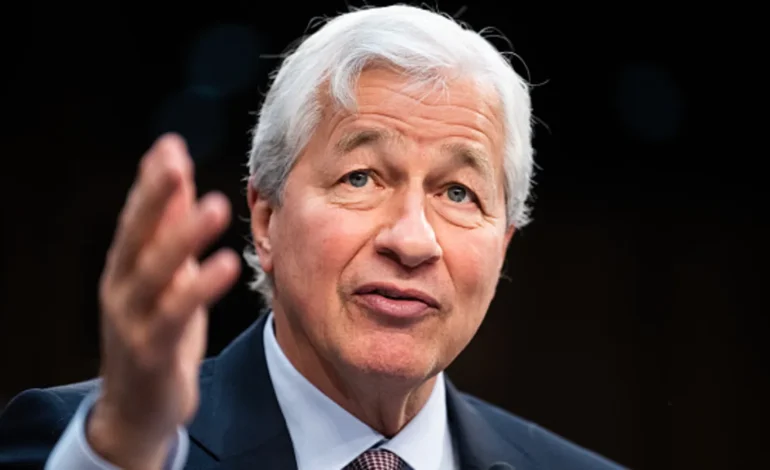Jamie Dimon’s Persistent Warnings Reflect a Cautious Approach to Banking, Not Just Pessimism

Jamie Dimon, the longtime CEO of JPMorgan Chase, is well-known for his recurring warnings about the state of the global economy.
From concerns about inflation and rising debt to predictions of economic “hurricanes,” Dimon has developed a reputation as one of Wall Street’s most vocal pessimists. Yet, his bank has consistently posted record-breaking profits and outperformed rivals, raising questions about why one of the most successful figures in finance remains so publicly cautious.
A review of Dimon’s public statements and 20 years of investor letters reveals a shift in tone over time. Initially preoccupied with navigating the fallout from the 2008 financial crisis, his focus has since broadened to include concerns over geopolitical instability, monetary policy, and the US fiscal trajectory. Despite these warnings, JPMorgan has thrived—posting record profits in seven of the last ten years and emerging as the world’s most valuable publicly traded financial institution.
Some analysts see this apparent contradiction as strategic. While Dimon’s economic outlook has grown more somber, JPMorgan has only grown stronger—expanding its market share in consumer banking, trading, investment banking, and payment systems. The firm processes more than $10 trillion in payments daily and spends $18 billion a year on technology and innovation.
In 2022, Dimon told investors that a metaphorical “hurricane” loomed over the US economy. The following year, he warned of the “most dangerous time the world has seen in decades.” And yet, during that same period, the S&P 500 delivered one of its best two-year runs in decades, and JPMorgan posted a record $58.5 billion in profit in 2023.
Critics argue that Dimon’s economic predictions often don’t materialize.
“His track record of leading the bank is incredible,” said Ben Mackovak, a bank investor. “His track record of making economic-calamity predictions, not as good.”
But others see logic in Dimon’s caution. In a business where risk is ever-present, some believe a conservative public stance helps reinforce prudent internal decision-making. Analysts like Charles Peabody of Portales Partners suggest Dimon uses his rhetoric to maintain discipline among his leadership team and avoid the complacency that has led to the downfall of other financial institutions.
Indeed, JPMorgan has acquired the remnants of several failed banks, including Bear Stearns, Washington Mutual, and First Republic, underscoring the fragility of even large institutions.
“Almost every single major financial company in the world almost didn’t make it,” Dimon told investors recently. “It’s a rough world out there.”
Others, like Wells Fargo banking analyst Mike Mayo, emphasize that good banking requires a mindset of constant vigilance.
“A good banker carries an umbrella when the sun is shining,” he said, adding that Dimon’s long-term warnings about rising interest rates proved prescient as rates surged in 2023.
Dimon’s approach also reflects a broader trend in executive communication. Industry veterans note that banking leaders are more likely to be criticized for excessive optimism than for caution. Former Citigroup executives recall how misplaced confidence in 2007 damaged reputations. By contrast, warnings—whether realized or not—can appear measured and prudent.
Whether motivated by strategy, caution, or corporate culture, Dimon’s economic pessimism doesn’t seem to be slowing JPMorgan’s performance. The firm remains a dominant force in both retail and investment banking, with more branches, deposits, and digital users than its peers.
With input from CNBC, Bloomberg, and the Wall Street Journal.









The latest news in your social feeds
Subscribe to our social media platforms to stay tuned